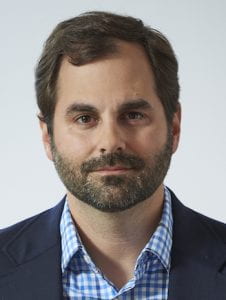“The fact that language development is dependent on our experiences and internal states and varies so much is exciting.”
 An interview with Michael C. Frank, PhD (David & Lucile Packard Professor of Human Biology, Stanford University)
An interview with Michael C. Frank, PhD (David & Lucile Packard Professor of Human Biology, Stanford University)
By: Michelle Johnson (2/7/22)
Have you always been interested in studying the mind?
I’ve always been interested in language and stories and narratives from different perspectives. I started out majoring in comparative literature, thinking that literary theory was how we might understand how we make meaning and understand each other. As I went through college, I started to get frustrated with the limited methods for answering some of those big questions in literature, although the questions and the texts were amazing, and so I moved over to philosophy and then to psychology research.
Once I found a home in a psychology lab, I had a wonderful mentor, Michael Ramscar, who convinced me that the tools of developmental psychology were a great way of answering these philosophical questions with empirical methods. He inspired me to study kids to look at the origins of abilities I was excited about, like inventing ways of transferring information back and forth in complex social situations.
What kind of questions are especially exciting to you right now?
Right now, I’m focused on the amazing variability of kids in the paths they take into language. The consistency of language learning is much remarked on – how kids all over the world acquire their native language or multiple languages rapidly, sometimes even before they’re able to do other things, like put on their shoes or get ready for school by themselves. That consistency is exciting, but the variability of the process is also striking. Many maturational processes in development don’t show the same degree of variability. The fact that language development is dependent on our experiences and internal states and varies so much is exciting.
What kind of applications of your research do you find particularly interesting?
Early language is such a cool area because it’s important for so many reasons. As a parent, myself, and with a lot of parents around me, I know we’re all concerned about our kids and about their development. It’s important to understand variability that’s consistent with a typical developmental course and what kind of variability leads to concern. The better we understand variation across many different language environments, the better we can identify kids early that may need more support with respect to language or other aspects of development.
Additionally, early language sets the stage for later success in school. If you’ve got a big vocabulary at age two and three, that suggests you’re more likely to be successful when you start to learn to read. It suggests you’ve got good language processing that’s going to help you put the pieces together as you start to decode letters and put those into words and sentences. To the extent that we understand these processes, and maybe even can think about ways to intervene on them, we set the stage for helping kids succeed in school.
Has doing this kind of research impacted the way you relate to others in your personal life?
Some people ask me whether being a developmental psychologist has given me practical tips or ways to do better as a parent, and the answer is resolutely, “No.” Instead, it’s given me a way to take a deep breath and relax because I know that worrying about small fluctuations is not very productive since kids’ trajectories are very different, especially with respect to language. For example, my son Jonah is currently taking a slightly slower route into producing language, and it can be frustrating in the moment when he’s trying to express himself. But I understand that in the broader scheme of things, he’s part of that pattern of variability that we’ve observed.
Reflecting on your journey as a researcher, what is the best piece of advice you’ve received?
When I was trying to plan my own path, a mentor of mine asked me, “Who do you really admire? What paths did they have, and what issues really motivated them?” That conversation helped me think through how to get to where I wanted to be. I think it’s tempting to say, “What’s the next step professionally? Do I go to grad school, etc.?” That’s very important, and you have to plan your career out. But it’s also easy to lose sight of the joy of thinking about the big questions you ultimately want to answer, even if you may not get there in the short term.
This focus on those bigger, exciting, groundbreaking questions is something that distinguishes a lot of the scientists that I admire. I love that they can keep their eyes on the top of the mountain even as they’re slogging in the mud at the bottom.
Click here to learn more about Dr. Frank’s work.
Click here to go back to the “Interviews with Scientists” page.
